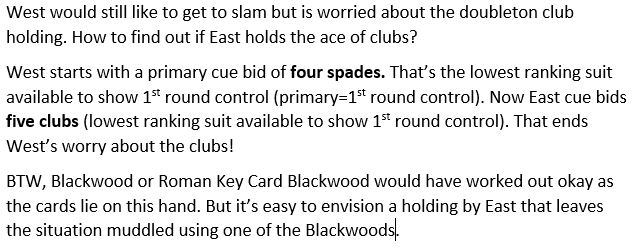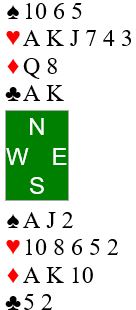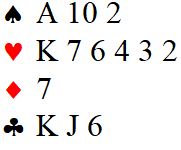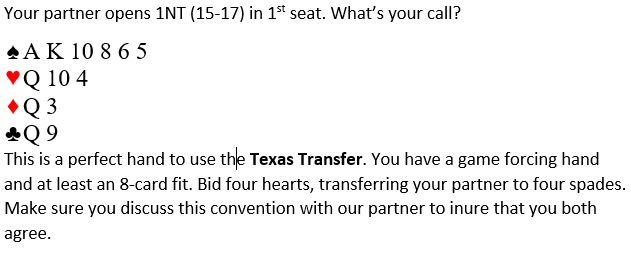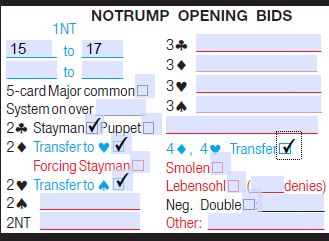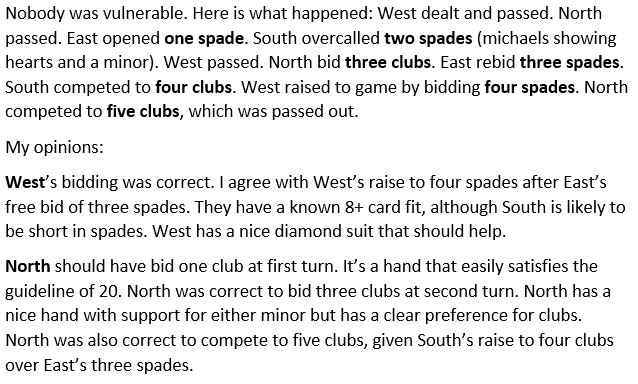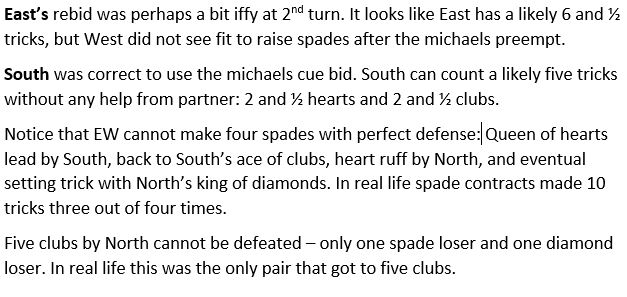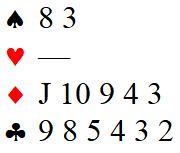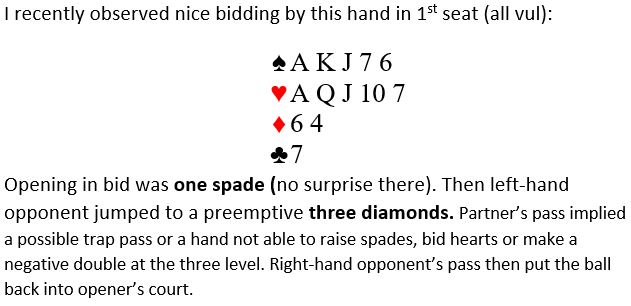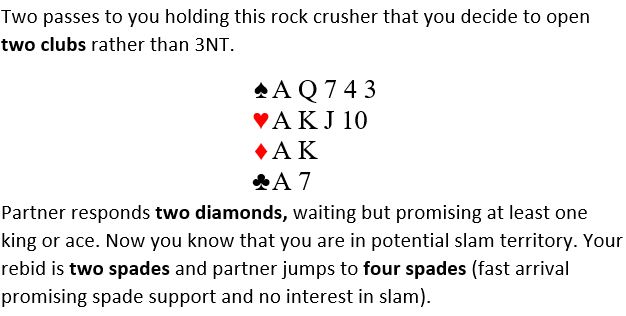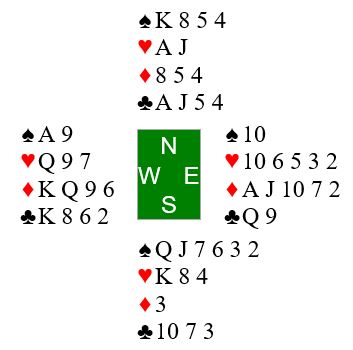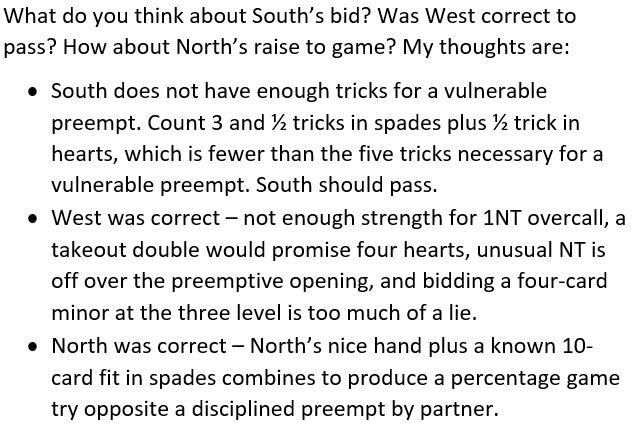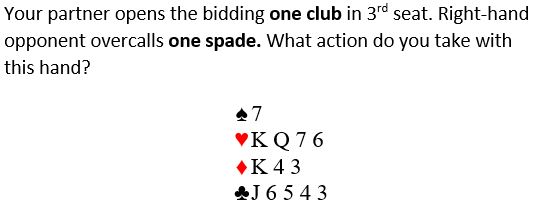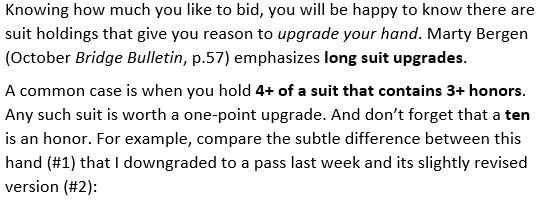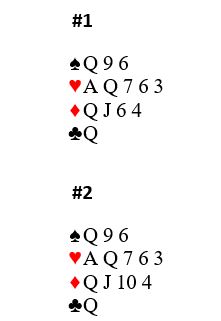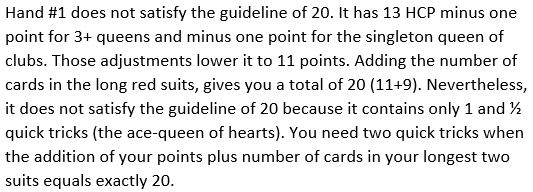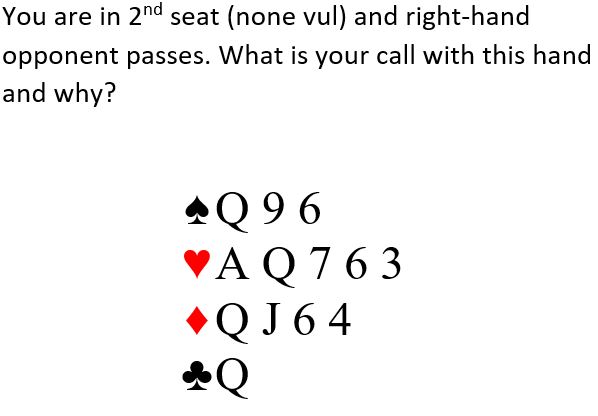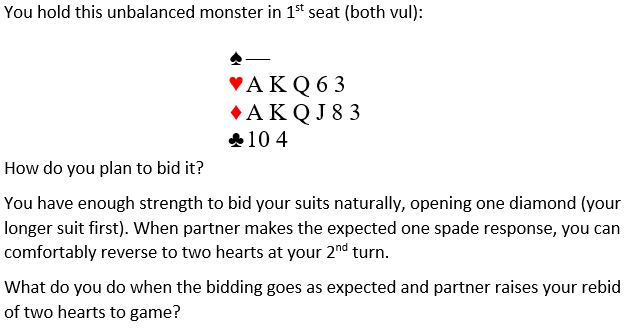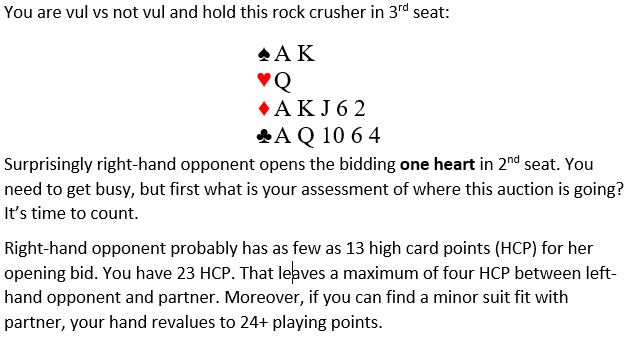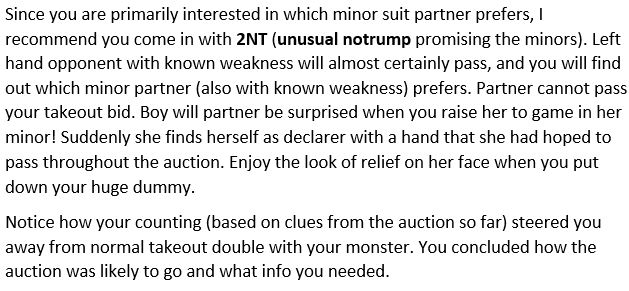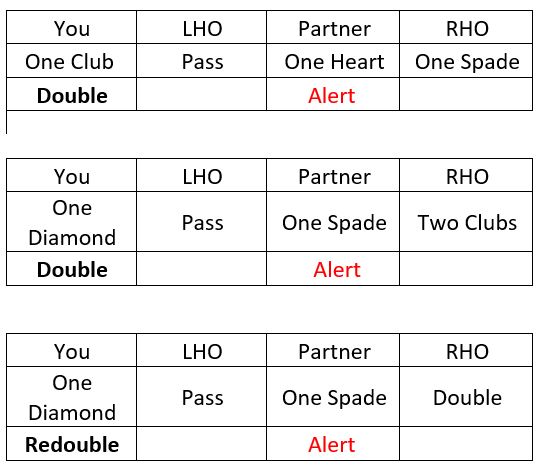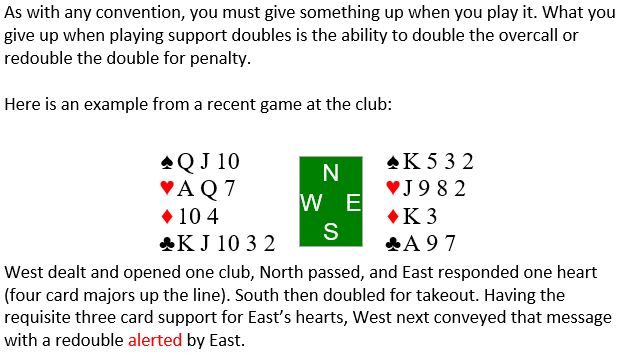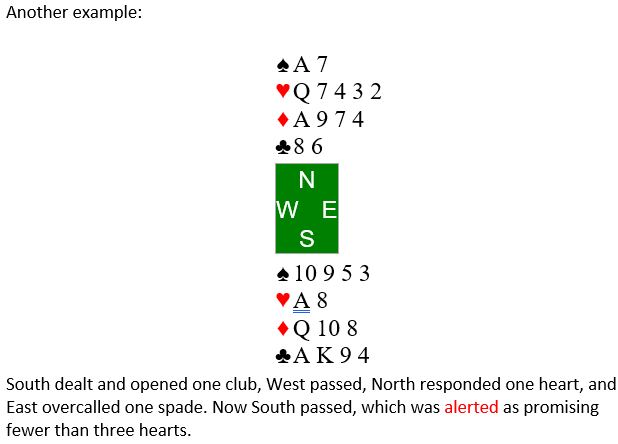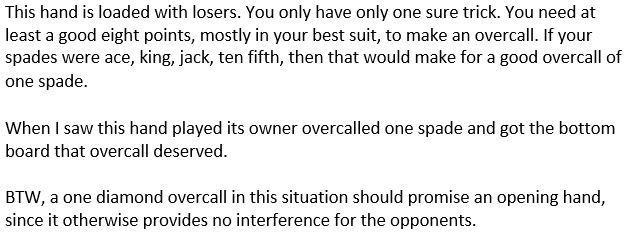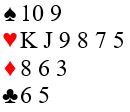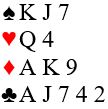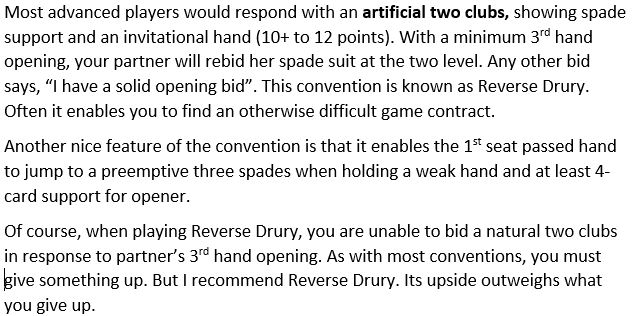Category Archives: Exercises: It’s Your Call
This is the situation for a support redouble as discussed here. It’s a useful convention and I recommend it for you and your partner.
Update 1/30/2020: I got the logic wrong on this when I made an editing error. I will repost it later today for all two of you who puzzled over it.
Most pairs did not get to slam on this hand. Would you get there? If so, how should the bidding go?
South was the dealer and opens one heart. Note that this is a sound opening bid: South has 12 high card points, plus one additional point for the 5th heart, plus two and ½ quick tricks.
How should North respond? I recommend the use of Jacoby 2NT. It’s an artificial, game forcing bid that tells partner you have 4+ hearts. Your eventual contract will be at least four hearts.
How about South’s rebid? South has a minimum opening bid with no singleton or void. I recommend South rebid four hearts. That’s known as fast arrival, informing partner that (based on your hand) you have no interest in going beyond game.
This is where it gets interesting. What should North do at her second turn? I recommend cue bidding as the way to possible slam. North cue bids five clubs, a primary cue bid showing 1st round control of clubs and denying 1st round control of spades (since spades were bypassed).
Now South cue bids five diamonds, the lowest available primary cue bid to show 1st round control of diamonds.
North, worried about spades based on the auction so far, retreats to five hearts.
Now South signs off in six hearts, since she has 1st round control of spades.
Nice article on primary and secondary cue bidding from Ron Klinger here. You will see a few editing errors, but the logic is clear and easy to figure out.
More on Jacoby 2NT here.
You are in 1st seat with nobody vulnerable holding this hand? What’s your call?
I recommend you open the bidding with one heart. This hand is too good for a preemptive two hearts. It values at 13 points (4 in spades, 5 in hearts, 4 in clubs). Length in hearts gives you the two points in addition to the king. Those who opened two hearts missed game in hearts.
You are sitting North (not vul vs vul) and partner opens one notrump (15-17) in 1st seat. What do you say with this hand?
Most players have a mechanism for getting to three of a minor to play after partner has opened 1NT. The usual way is to respond two spades. It’s a relay to clubs (announced as “relay to clubs”) directing partner to bid three clubs. If responder has diamonds responder corrects. I recommend you discuss this with partner when filling out your convention card. This is a hand that should play better in three clubs than 1NT. Don’t you agree?
Looks like you will have to successfully locate the king of spades or the queen of hearts, although partner may have the queen of hearts. Even if king of spades is on side you may not be able to drop it. Other posssibilities are ruffing out the queen of hearts or setting up a trick in one of partner’s minor suits. Slam is no sure thing, but it’s probably a little better than 50 percent. I would bid six.
…subtract 1 point for a singleton king, queen or jack.
Marty Bergen, Bridge Bulletin, November 2019, p. 57
Also, in the September issue of the Bulletin Marty recommends subtracting 1 point for a hand containing three or four queens. Making Marty’s adjustment to the guideline of 20 should help you answer this question.
Be aware of implications uncovered during the auction. That awareness may suggest the need for an unusual action during the bidding. Here is an example.
Declarer made five clubs without breaking a sweat. The unusual use of unusual notrump resulted in a top board.
Your partner opens one club in 4th seat, right hand opponent passes, and you hold this crummy hand (vul vs not vul):
It’s a bad hand, but you do have a nice heart suit. Should you bid or pass?
The danger is that your side will get too high, even in the likely event that partner has a strong hand. You might consider a weak jump shift to two hearts, if that is your partnership agreement. Weak jump shifts, including when you are not yet in a competitive auction, are becoming pretty standard these days. But don’t forget that you are vulnerable.
Most pairs chose to bid their heart suit at the one level, and the bidding got too high for your side. The best result was when partner was allowed to play one club, which made two. This was your partner’s hand:

